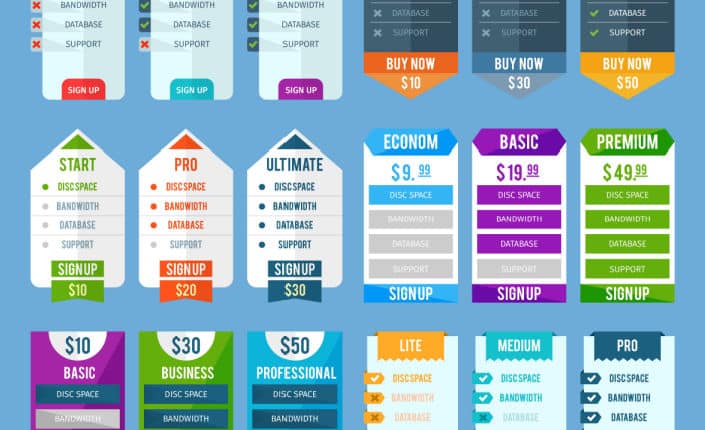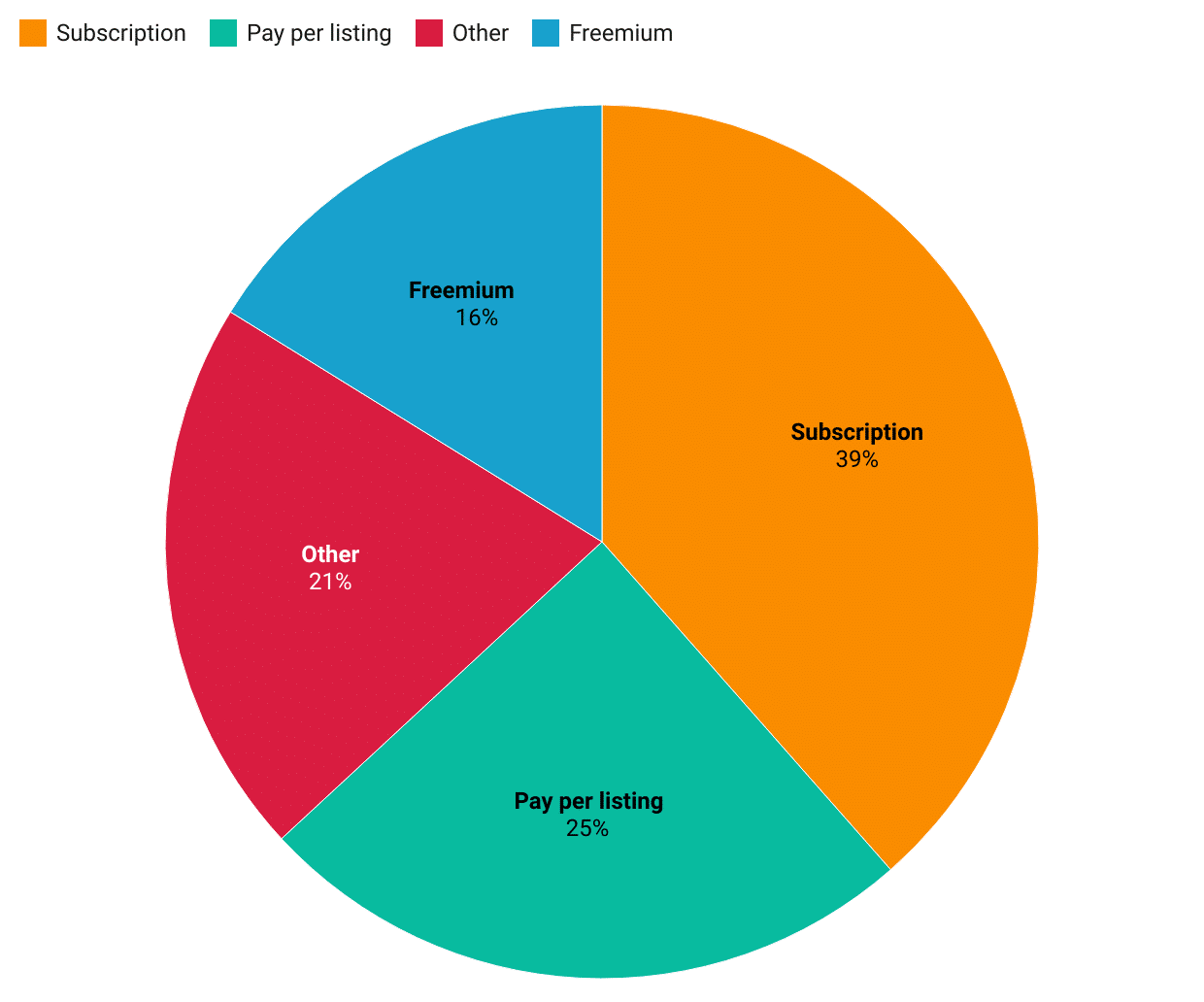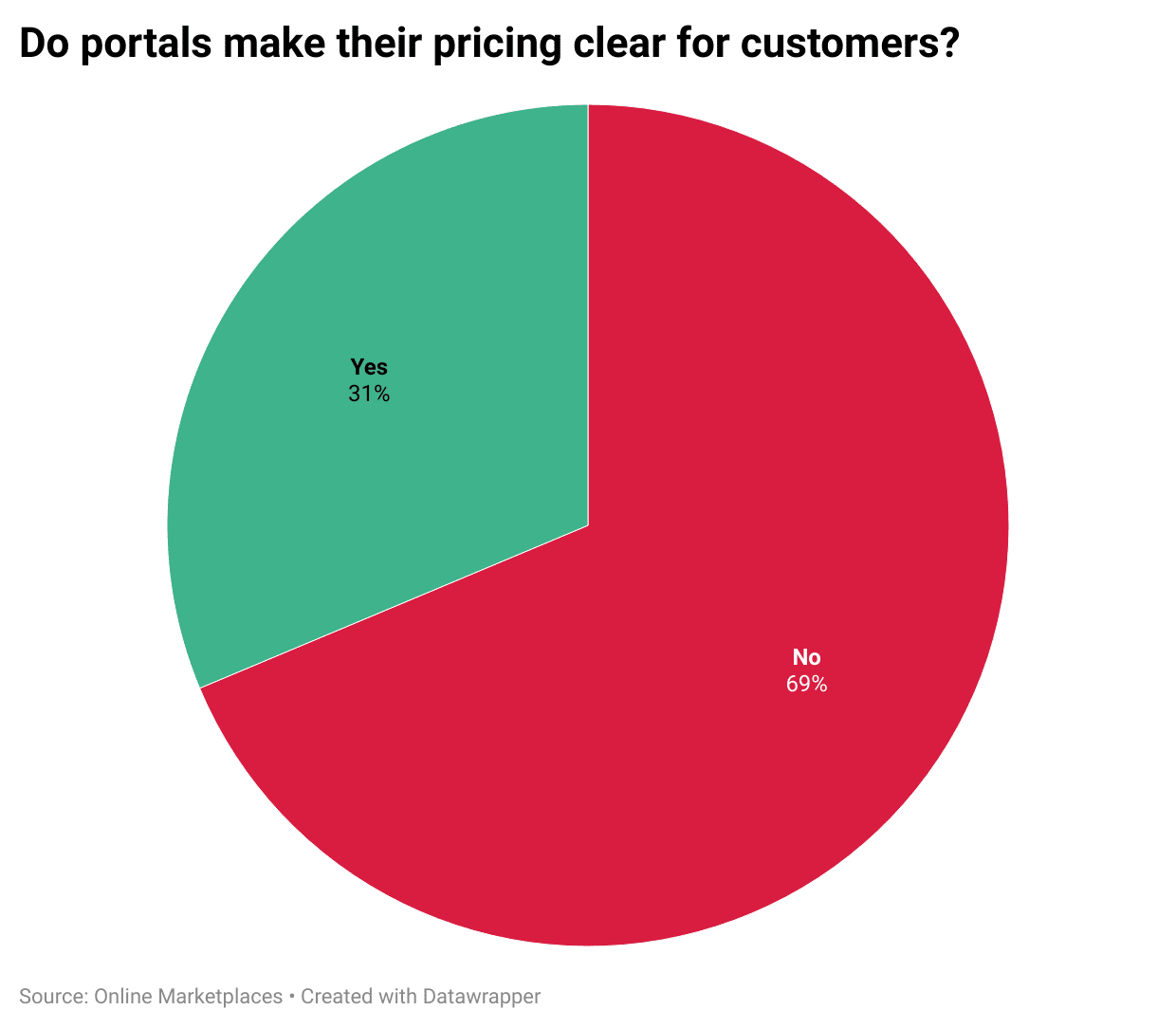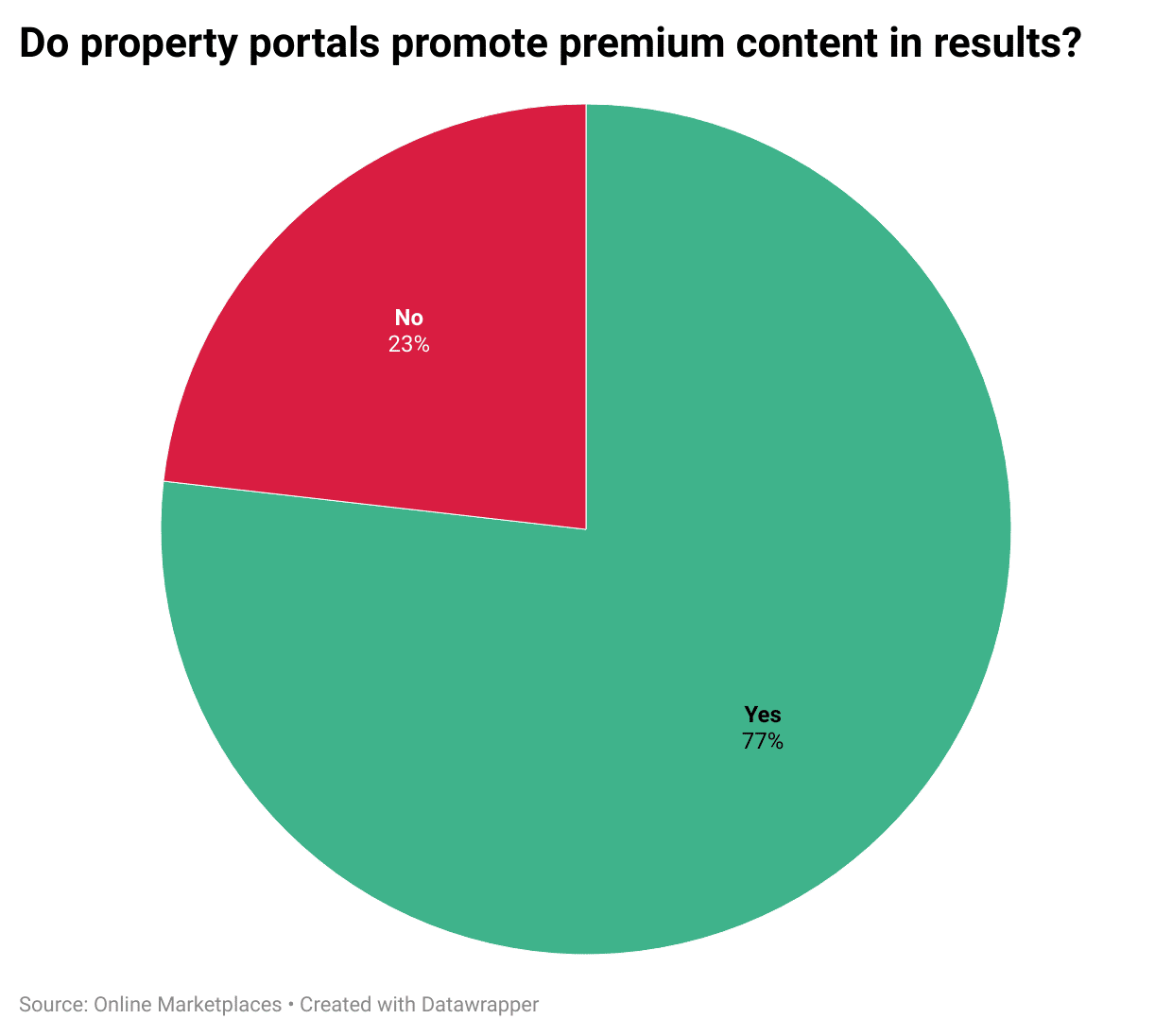
How do real estate portals make money?
The answer may seem obvious. However, while real estate portals might serve the same purpose for users and mostly all look the same they certainly don't all generate revenue the same way.
In looking through more than 600 of them, we found that real estate portals around the world are generally guarded with their pricing and in many markets, the way portals monetise listings is truly arcane.
All businesses feel better when they can place the word 'recurring' next to the word 'revenue' and portals are no different. We found that 39% of real estate portals around the world have a subscription model.

The boundary between pay-per-listing and subscription is often a matter of interpretation. Many portals in less developed markets will charge agents a listing fee which recurs every month but only includes the basic listing services and promotion of those listings on results pages.
When collecting the data we tended to differentiate the subscription models as the ones where the difference in pricing between one package and a more expensive one was less about the number of listings and more related to other things like exposure in results, access to more tools or agent branding.
We suspect that there are a lot more real estate portals that use a freemium model out there but when they made us verify an account with a local number or call them to find out how they made money, we tended to leave their business model column blank on our spreadsheet.
"Contact us for pricing" is one of the most irritating sentences a prospective customer can read on any website, and it's a very common one on real estate portals around the world.
More than two-thirds of the property portals we looked at do not give prospective customers a price unless they pick up the phone.

Portals derive many benefits from having any prospective agent customer call them to get a price for listing their properties and according to portal consultant and according to former REA Group Head of Residential, Andrew Rechtman, opaque pricing makes perfect business sense.
“In most markets there are significant differences in market dynamics from one city to another, and sometimes even down to the suburb level. The relative audience strength between the portal competitors, as well as the competition between agencies and their willingness to pay for premium ads, can differ enormously.
Given that context, it is not surprising that a majority of portals decline to make their pricing fully accessible to the public, since it enables them to create the right value proposition and unique offers for many of their most important customers, rather than being constrained to a highly transparent pricing table”
We tended to find that the larger the portal company, the less inclined they were to reveal their prices. This makes sense. Market leaders are more likely to have demanding shareholders, more likely to have monopolistic positions and are more likely to increase the prices of listing packages regularly.
Having to speak to a sales rep to get a price might be frustrating but when the pricing is as convoluted as this fantastically complicated advertising rates card from Czech portal Sreality, maybe it's justified.
Although portals love to justify their prices by saying that they represent great value per lead, very few of them have a truly success-based structure as their primary business model.
Rechtman thinks that the success-based models are tough to make work for real estate portals.
"Nobody seems to have cracked these alternatives successfully, with the possible exception of the US, which has a very different dynamic to almost every other market.”
Some leading portals in the United States are pushing hard to migrate customers from a subscription model to a success-based model. In April 2021, Zillow started testing a purely 'post pay' model in certain markets whereby agents only pay a percentage of the sales commission if and when a lead transacts.
Zillow's rival Realtor.com has long championed the success-contingent model and generates more than 30% of revenue this way. The U.S. number two might be about to revert to a purely subscription-based model though if a mooted takeover bid from CoStar takes place.
Three-quarters of the portals we looked at promote premium content by putting it higher in their search results. The figure may be even higher but how algorithms work isn't always evident on the front end of listings results pages.

According to Rechtman, if the time-honoured tactic of putting paid listings at the top of results is good enough for the likes of Google, then it's not something that real estate portals are going to pass up.
"The promotion of paid listings higher up the search results, or via other unique placements that drive increased visibility, seems like a very old-fashioned user experience.
However, it has been a tried and tested model in multiple markets, so it isn't surprising to see that almost 80% of portals are still doing this, in the same way that major players in eCommerce such as booking.com, amazon or skyscanner continue to do.
It is not always a great experience for users, but the effectiveness of this tactic is unquestionable and still drives ROI for agents and agencies, so it is unlikely to disappear any time soon."
We found that specialist rental and shared accommodation portals were much less likely to artificially boost listings on their results pages with over 50% of portal sites in this category not visibly promoting paid listings.
It does seem that boosting listings for monetary reasons is pervasive among portals that feature sales listings though...
When we interviewed houza CEO JP Mondalek back in October 2022 he told us that the challenger portal was taking on the likes of Bayut and Property Finder in the Emirati market by doing things differently. This included exclusive listings and a listing algorithm that was based only on the "quality of the ad and exclusivity of the content".
Now though, houza has introduced a scheme named 'Deals' whereby agents get premium placement for their listings by offering exclusive extra deals to users that transact on their properties through houza.
What we were concerned with was how real estate marketplaces monetised the business of showing property listings to their users, not all the bells and whistles bits around the side of that which we looked at in a previous study.
We also weren't interested in horizontal sites unless they were one of the primary real estate marketplaces in their countries (Finn.no in Norway for example).
There were four basic questions on our spreadsheet as we went through each portal website: